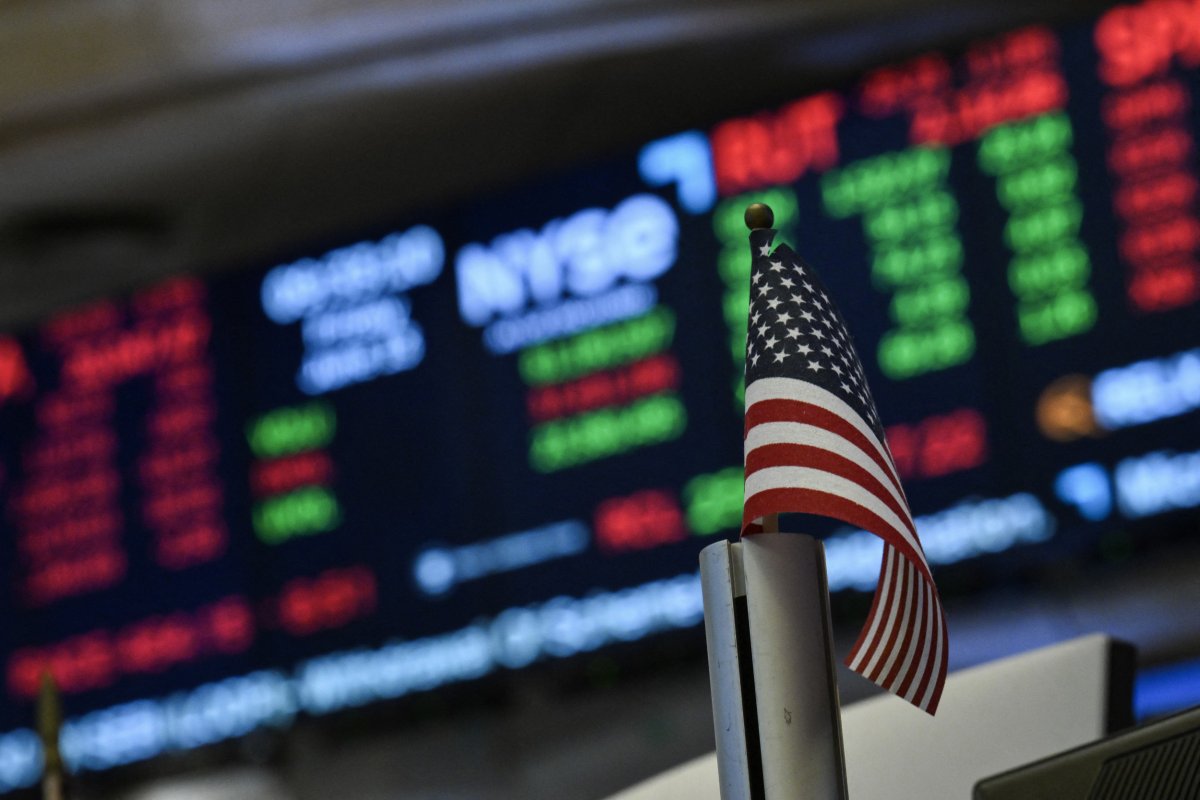**Americans’ Fears of Stock Market Crash Skyrocket**
Recent reports reveal a growing wave of anxiety among Americans regarding a potential stock market crash. This surge in fear coincides with ongoing economic uncertainties and the implementation of President Donald Trump’s tariffs. A report from predictive consumer data company Resonate highlights that nearly **26%** of the population is anxious about Wall Street’s stability, with concerns about a broader economic slowdown climbing to **46%**, a 17.5% increase from previous months.
Why It Matters
The second term of Trump’s presidency has been marked by an array of tumultuous tariffs and upheaval in the stock market. In March, he described the U.S. economy as navigating a **“period of transition,”** rather than a recession.

What To Know
Growing **anxiety** over the future of the U.S. stock market has intensified in recent months. Driven by political uncertainty and unpredictable policy shifts, many people have become increasingly wary. According to Kevin Thompson, CEO of 9i Capital Group and host of the 9innings podcast, “People are naturally concerned about the next market crash. Most individuals near retirement vividly recall the turmoil of 2008-09 and want to avoid a repeat of those experiences.”
Financial stability is also in jeopardy, with a reported **24%** increase in individuals feeling “somewhat worse off” financially. This shift illustrates a broader trend of uncertainty fueled by Trump’s ambitious trade policies.
Over **100 days** into Trump’s second term, the administration has attempted to provide reassurance amid looming fears of recession and inflation. Officials have alternated between denying the possibility of recession, blaming past administrations, and warning that economic hardship may precede recovery.
However, the implications of Trump’s **Big Beautiful Bill Act**—projected to add **$2.4 trillion** to the nation’s debt—have raised eyebrows among economists and ordinary Americans alike. Polls reflect a stark divide among political ideologies, with many **Republicans** maintaining confidence in Trump’s strategies despite widespread concerns about the ramifications of tariffs and growing international uncertainty.
In response to these economic conditions, consumers are pulling back on major expenditures. Reports indicate that **29%** of individuals have canceled subscriptions, and **45%** of consumers do not plan to travel this fall due to financial ambiguity. Moreover, **48%** of shoppers are opting for cheaper brands, reflecting a **6%** increase in cost-conscious purchasing behaviors.
What People Are Saying
Trump remarked in March: “Our country had to do this. We had to go and do this. Other countries have taken away our business and jobs.”
Drew Powers, founder of Powers Financial Group, highlighted: “We’ve witnessed incredible volatility in 2025. A **20% decline** in just six weeks earlier this year reinforces worries. The markets react sharply to tariff discussions or crisis events, reflecting our interconnected global landscape.”
Kevin Thompson reinforces: “These fears are valid, regardless of optimistic market pundits. The **deficit** is an elephant in the room that requires attention, yet remains ignored.”
Alex Beene, a financial literacy instructor, notes: “While concern over the stock market has eased from its initial peak following tariff announcements, many investors remain apprehensive. The fear of aggressive trade negotiations could reignite prior market declines.”
What Happens Next
The future of the stock market is uncertain, largely hinging on factors such as international trade dynamics and corporate performance. As Beene notes, “The reality is complex. It’s too soon to determine whether we’re on the brink of economic darkness or a more favorable outlook.” The coming months will be pivotal in shaping public sentiment and market stability.
Stay informed, and as these developments unfold, keep a close eye on not just economic indicators but also the political landscape that influences them. Understanding these complexities is crucial for investors and consumers alike in navigating an uncertain future.






